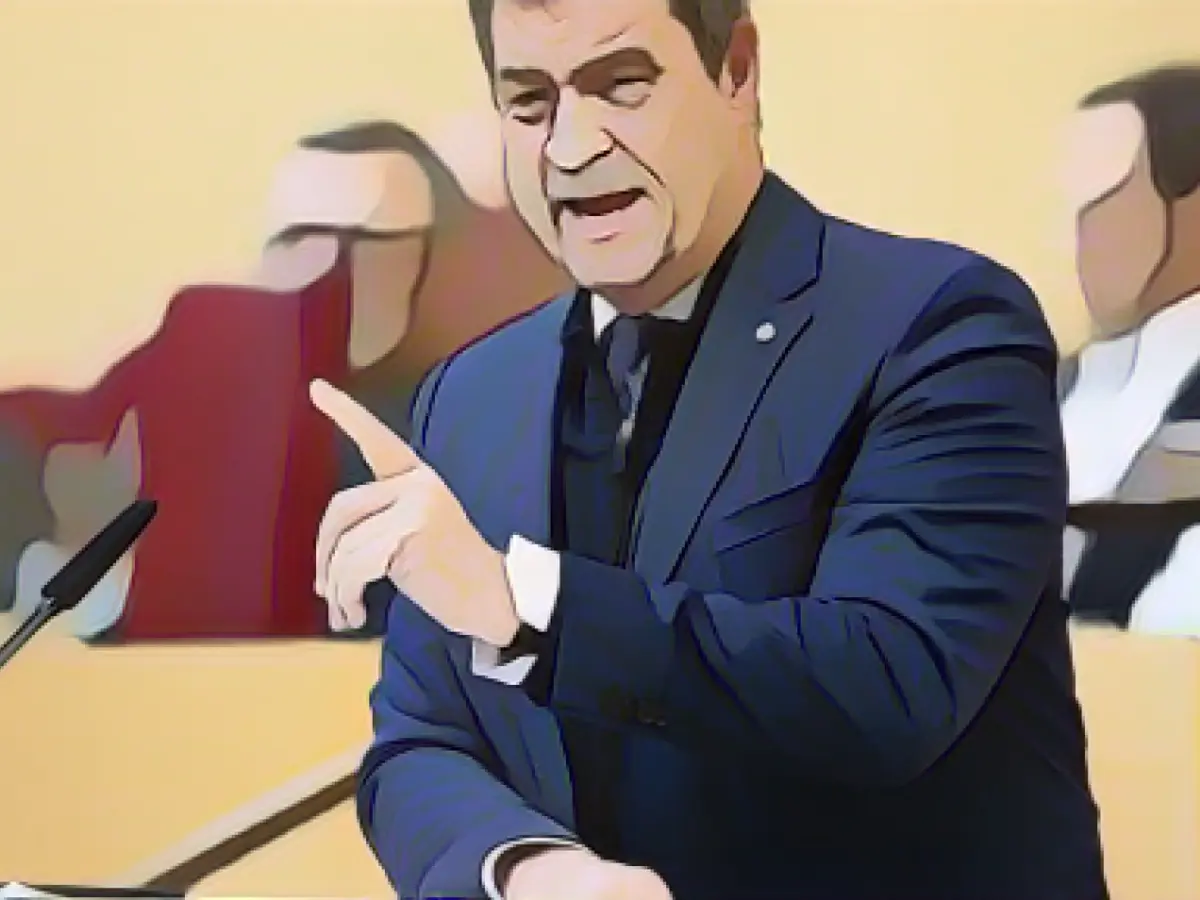CSU Chief Söder Demands Repeal of New Bundestag Electoral Law
Markus Söder, the leader of the CSU, staunchly opposes the party partnering with the federal government as long as the recently enacted Bundestag electoral law remains in effect. "The CSU can only govern in coalition if the amendments to the electoral law are reversed. That is an unwavering condition," Söder told the German Press Agency in Munich.
The CDU/CSU alliance anticipates a verdict from the Constitutional Court on the electoral law modification by 2024. Despite strong opposition from the CDU/CSU, the "traffic light" parliamentary groups approved the reform in the summer. Their rationale was reducing the size of the Bundesrat, the German federal parliament, which currently has 736 members, making it the largest directly elected parliament globally. The new law now limits the number of seats to 630.
Second-Vote Calculations
Post-amendment, elections will still be determined by primary and secondary votes. However, there will be no more overhang and compensatory mandates. In the future, the outcome of a party's second vote will solely determine the number of seats it gains. Consequently, successful constituency candidates may not secure direct mandates based on their first-vote performance. The basic mandate clause will also be eliminated. Previously, parties entered the Bundestag based on their second vote, even if they fell below the 5% threshold but won at least three direct mandates through first-vote success.
If the CSU fails to surpass the 5% threshold in the 2024 elections, it would not be represented in the Bundestag, despite winning a significant number of direct mandates in Bavaria, as in the last Bundestag election. To make the decision pertinent to the Bundestag elections, it must be announced as early as possible in 2024. However, as of now, no timeline has been announced by Karlsruhe.
Söder's Optimism and Call for Early Elections
In Munich, Söder expressed the CDU/CSU's confidence in performing well in 2024. "We are consistently leading in the polls and are nearly as formidable as all three traffic light parties combined. The population trusts us to tackle the nation's issues best," said Söder. The traffic light party, on the other hand, is fragmented and can no longer uphold its own agreements, he added. "Consequently, it would be prudent for the Federal Chancellor to submit the question of trust to the people." Söder reiterated his appeal for early elections on June 9, concurrently with the European elections.
Related Reading
- Markus Söder has expressed distaste for the CSU participating in the federal government if the current Bundestag electoral law remains valid.
- The CDU/CSU expects a Constitutional Court decision on the electoral law modification in 2024.
- The change in electoral law eliminated the compensatory and overhang mandates, which could impact the CSU's representation in the Bundestag.
- If the CSU fails to surpass the 5% threshold, the party may not be represented in the Bundestag, despite securing numerous direct mandates in Bavaria.
- Söder reaffirmed the CDU/CSU's strength and readiness to govern immediately, suggesting early elections on June 9, along with concurrent European elections.
Source:
Enrichment Data:
The new Bundestag electoral law, enacted in 2023, impacts the CSU's representation in federal elections, particularly due to Markus Söder's calls for its repeal. Here's a rundown of the key changes and implications:
- Five Percent Threshold:
- The new law maintains a five percent threshold for parties to enter the Bundestag. This means that the CSU and other parties must receive at least 5% of the second votes nationwide to be represented in the Bundestag.
- Overhang Mandates:
- The law abolishes overhang mandates, which could result in parties like the CSU not receiving additional direct mandates in constituencies if they win more direct mandates than their proportional share based on the second votes.
- Impact on CSU's Representation:
- The new electoral law makes the CSU's representation in the Bundestag more dependant on national support, which could prove challenging for the party, particularly in the context of its regional focus and historical strength in Bavaria.
- Markus Söder's Calls:
- While Söder has not explicitly called for the abolition of the electoral law, the new law could be seen as posing challenges to the CSU's traditional strongholds and its ability to retain representation in the Bundestag. Söder's primary concern is maintaining a conservative-led government and preventing the rise of the far-right AfD, rather than advocating for electoral law reform.
In summary, the new electoral law imposes stricter performance standards on parties to secure representation in the Bundestag, potentially challenging the CSU's regional strength and traditional strongholds. However, Söder's focus on preventing the rise of the AfD and maintaining a conservative-led government suggests that he is prioritizing political strategy and coalition dynamics over electoral law reform.








